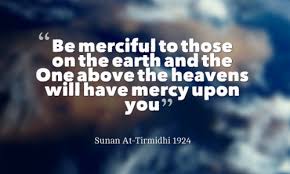The Man with the Best Manners
The virtues of good manners are seen in varioushadiths, which points to good character that is pleasing to God and His messenger.
Prophet Muhammad (peace be upon him) reminded that:
“The most beloved of Allah’s servants to Allah are those with the best manners.” (Al-Bukhari)
In a hadith in Al-Bukhari’s Book of Manners, Abu Darda’ reported that Prophet Muhammad said:
“Nothing is weightier on the Scale of Deeds than one’s good manners.” (Al-Bukhari)
Scales and weight play a recurring role when it comes to good deeds in Islam. Good manners therefore are an important realm in building a character of a true Muslim, one who continuously wishes to emulate Prophet Muhammad for the sake of God.
Prophet Muhammad was one of the mildest mannered icons in history. For someone who was chosen to mould the final faith for mankind in the form of Islam, and to put a helm onto it by championing the faith to perfection, it only makes sense that the Prophet would do so mindfully, with care and compassion. He was very well-mannered in his speech and mannerisms.
Abdullah ibn Amr said:
“The Prophet of Allah was never obscene or coarse. Rather, he used to tell us that the best among us were those with the best manners.” (Al-Bukhari, Muslim & At-Tirmidhi)
10 Hadith’s On The Importance of Manners
1) Abu Darda (RA) reported that Rasulullah (SAW) said, “Nothing is weightier on the Scale of Deeds than one’s good manners.”(Al-Bukhari)
2) Abu Hurairah (RA) said, “I heard Abu al Qasim (Rasulullah (SAW)), say, ‘The best among you in Islam are those with the best manners, so long as they develop a sense of understanding.” (Al-Bukhari)
3) Rasulullah (SAW) said: “The most beloved of Allah’s servants to Allah are those with the best manners.” (At-Tabarâni and Albani authenticated it in Silsilatul-AHaadeethis-Saheehah
4) Abd Allah ibn ‘Amr said, “Rasulullah (SAW) was never obscene or coarse. Rather, he used to tell us that the best among us were those with the best manners.” (Al-Bukhari)
Verily, the (human) Self is inclined to Evil, except when my Lord bestows His Mercy –
Imam as-Sa’di | Abbas Abu Yahya
Chapter 7: The Soul Inclines Towards Evil
The saying of Allaah Ta’ala:
إِنَّ النَّفْسَ لَأَمَّارَةٌ بِالسُّوءِ إِلَّا مَا رَحِمَ رَبِّي
<< Verily, the (human) self is inclined to evil, except when my Lord bestows His Mercy (upon whom He wills). >> [Yusuf: 53]
This is evidence for the description of the essence of the soul – it does not leave this description of inclining towards evil except with Allaah’s mercy and concern from Him, because the soul is oppressive and ignorant. Nothing comes from oppression and ignorance except every evil. Therefore, if Allaah has mercy on His slave and blesses him with beneficial knowledge and makes him follow a path of justice in his manners and his actions, then his soul loses this description, finds tranquility in the obedience of Allaah and His remembrance and does not command its companion except to do good, and this leads to the grace of Allaah and His reward. Allaah Ta’ala said:
The Excellence of the One Who has Mercy upon the People – Imam as-Sa’adi
 From Jareer bin Abdullaah –Radi Allaahu anhu– who said: the Messenger of Allaah –sallAllaahu alayhi wa sallam– said:
From Jareer bin Abdullaah –Radi Allaahu anhu– who said: the Messenger of Allaah –sallAllaahu alayhi wa sallam– said:
من لا يرحم الناس لا يرحمه الله
‘Whoever does not have mercy upon the people then Allaah does not have mercy upon him.’
Collected by Bukhari & Muslim
Shaykh AbdurRahman bin Nasr as-Sa’adi (d. 1376 A.H.) commented on this hadeeth saying:
‘The literal wording of the hadeeth indicates that the one who does not have mercy upon the people then Allaah does not have mercy upon him. The understanding of the hadeeth is that whoever has mercy upon the people, then Allaah has mercy upon him.
Just like the Messenger -sallAllaahu alayhi wa sallam- said in another hadeeth:
‘الراحمون يرحمهم الرحمن. ارحموا من في الأرض؛ يرحمكم من في السماء‘
‘ar-Rahman (The Most Merciful) has mercy upon Merciful people. Have mercy upon those on the earth, and the One above the skies will have mercy upon you.’[1]
Therefore, the mercy a slave of Allaah has for the creation is from the greatest means by which the mercy of Allaah is acquired. From the effects of that mercy is goodness in the Dunyaa and goodness in the Hereafter. From the greatest means of Allaah’s mercy being blocked and prevented is if the slave of Allaah does not have mercy to the creation. The slave of Allaah is in great need and dire want of Allaah’s mercy, he cannot do without it for even the blink of an eye, and he cannot do without this mercy due to what it contains of blessings and repelling of punishment from the mercy of Allaah.
Read more: The Excellence of the One Who has Mercy upon the People – Imam as-Sa’adi





 The Five Pillars of Islam
Islam has five primary obligations, or pillars of faith, that each Muslim must
fulfill in his or her lifetime. They are as follows:
Shahadah, professio
The Five Pillars of Islam
Islam has five primary obligations, or pillars of faith, that each Muslim must
fulfill in his or her lifetime. They are as follows:
Shahadah, professio